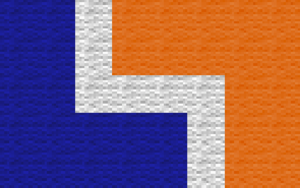FISA: Difference between revisions
(fixed player: page links) |
|||
| Line 8: | Line 8: | ||
* [[FISA Teams and Stadiums (r6)|PvE Revision 6]] | * [[FISA Teams and Stadiums (r6)|PvE Revision 6]] | ||
* [[FISA Teams and Stadiums (r7)|PvE Revision 7]] | |||
== Official Rules == | == Official Rules == | ||
Revision as of 04:38, 19 April 2012
FISA (Fédération Internationale de Spleef Association, English: International Federation of Association Spleef) is the semi-official spleef league of the Reddit Public PvE server. It was founded during PvE revision 6 by Chow_D, Socarch26, leafstorm, and others.
Teams and Stadiums
The team and stadium listings are split up by revision.
Official Rules
These rules are used for all official spleef matches played as part of FISA. Obviously you don't have to follow them when just playing spleef for fun. ;-)
- Rule Number One: Have fun and don't be a jerk.
The Field
- The field surface can be made out of any block, so long as it does not impede movement (as does Soul Sand or Ice). The surface should be all made of one block, though variations like different types of leaves or different colors of wool are OK.
- The stadium staff must provide all players with tools capable of consistently breaking the field blocks in 0.2 seconds or less. (The players must return said tools to the stadium staff after the match.)
- The field must be clear of obstructions for 3 blocks above the surface.
Matches and Teams
- A match is made up of multiple games. Most matches are played in a "first to N" format, where each game won by a team grants that team one point (draws are worth zero points), and the first team to reach N points (5 is a good number) wins the match. However, other match formats (such as best of N or single-game) are possible, so long as the rules are made clear in advance.
- Both teams must field the same number of players. All games in the match must be played with the same number of players (for example, a match may consist of all 5 on 5 games).
- Teams are allowed to substitute players between games, but not during a game.
- All members of a team must wear uniforms, or at least the same colors, such that it is easy to tell at a glance which players are on which team.
- There is additionally a referee, whose job is to start and stop games, call the winner of games and matches, and make decisions about the rules. Ideally, the referee should not be associated with either team.
Game Structure
- Before each game, the captains of each team should call, "<Team Name> ready with <Number of players>" or something similar.
- If the field has gates which are controlled by the referee, play begins when the gates open. If there are no gates, or if the gates are not controlled by the referee, play begins when the referee calls "Spleef!" (Even if there are gates, the referee should call "Spleef!" anyways.)
- If a player leaves the field by any means (falling through the surface, exiting the field, logging out or warping, etc.), it counts as a "drop." When only one team has undropped players remaining, that team wins the game, and the referee calls the game.
- If the game "stalls" (i.e. the remaining players have no way of reaching or dropping each other), or if there are no players left on the field, the referee should call the game a draw.
- When the referee calls "stop," play stops. All players should cease moving and breaking blocks immediately. If a player drops after play stops, the referee may give him or her a chance to return to the field if play resumes. After whatever caused the referee to stop play is resolved, if the game was not thrown out, the referee should call "Resume play," at which time play continues.
- After each game, players from both teams should help rebuild the field surface for the next game. (In traditional spleef, only the losing team has to rebuild, but this way allows the next game to begin sooner and is more sportsmanlike.)
Illegal Actions
If anyone (player or spectator) does the following, the referee should stop play. It is then his or her decision whether to resume play after resolving the problem, call the game a draw, or call the game or match a forfeiture on the part of the offender's team, as well as whether to eject the offender from the stadium.
- Non-players or dropped players entering the field.
- Breaking any blocks except the play surface.
- Placing blocks on the field.
- Non-players or dropped players breaking blocks.
- Intentionally attacking a player.
- Flying by any means.
- Throwing or spilling things on the field.
- Releasing mobs or other entities onto the field.
- Using potions or other performance-enhancing (or reducing, for that matter) substances while playing.
- Using one's own tools to break the surface instead of the tools provided by the stadium staff.
- In general, doing anything that gives one an unfair advantage, damages the stadium, or is offensive.
